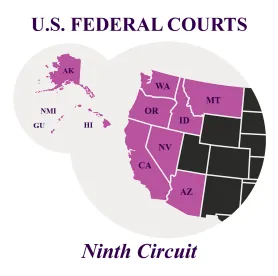A consensus is emerging among federal district courts: the Coronavirus Aid, Relief, and Economic Security (CARES) Act does not create an entitlement or private right of action to collect “agent fees” from PPP lenders.
The Jones Walker PPP Bank Litigation and Regulatory Task Force has been monitoring trends in litigation since the implementation of the Paycheck Protection Program (PPP). The Task Force identified PPP agent-fee disputes as a litigation growth area, and reported on the first major decision in agent-fee litigation in August 2020, in which a federal district court in Florida held that the CARES Act and its implementing regulations do not require lenders to pay a portion of the loan processing fees they receive from the Small Business Administration (SBA) to agents that helped borrowers obtain PPP loans. See Sport & Wheat, CPA, PA, No. 20-05425 (N.D. Fla. Aug. 17, 2020.
On November 16, 2020, a federal district court in California in Am. Video Duplicating Inc. v. Citigroup Inc., No. 20-03815 (C.D. Cal. Nov. 16, 2020) joined the growing chorus of court opinions to hold that “the CARES Act does not create an entitlement or private right of action to collect agent fees.”
In Am. Video, the plaintiffs sought agent fees from PPP lenders for assisting clients in securing PPP loans. The court was faced with the issue of whether the CARES Act entitled plaintiffs to assert a claim for agent fees. The decision turned on the interpretation of the interim final rule by the SBA, which was issued to provide guidance on the administration of PPP loans. See Interim Final Rule (IFR), 85 Fed. Reg. 20,811 and 20,816 (April 15, 2020). The IFR explains that the PPP was temporarily added to the SBA’s Section 7(a) Loan Program, and it states, “The program requirements of the PPP identified in this [IFR] temporarily supersede any conflicting Loan Program Requirement” (emphasis added).
As the court pointed out, under the existing Section 7(a) Loan Program, parties must agree to agent fees using a “Fee Disclosure and Compensation Agreement,” otherwise known as a Form 159. See 13 C.F.R. § 103.5(a) (“Any Applicant, Agent, or Packager must execute and provide to SBA a compensation agreement . . . . SBA provides the form of compensation agreement . . . to be used by Agents.”); see also SBA Form 159 (rev. Apr. 9, 2018).
The Am. Video court agreed with other courts that have addressed the issue, including the Sport & Wheat court, concluding “that Form 159 does not conflict with the IFR because . . . there is nothing in the IFR that prohibits the SBA Administrator from requiring use of the form (or the disclosure of agent fees) and the form clearly states that it is to be used ‘whenever an Agent is paid by either the [borrower] or the SBA Lender in connection with the SBA loan application.’”
The Am. Video holding reinforces an interpretation of the CARES Act that is favorable to lenders, echoing similar court decisions including Sanchez, PC v. Bank of S. Tex., No. 20-00139 (S.D. Tex. Oct. 14, 2020), Johnson v. JPMorgan Chase Bank, N.A., No. 20-4100 2020 (S.D.N.Y. Sept. 21, 2020), and Sport & Wheat, CPA.




 />i
/>i

